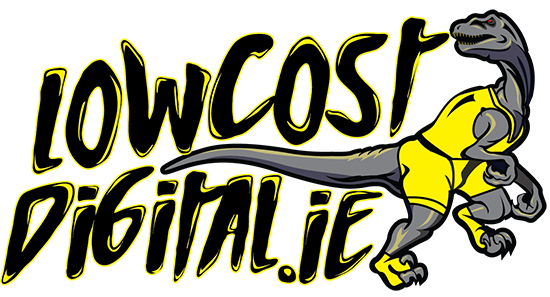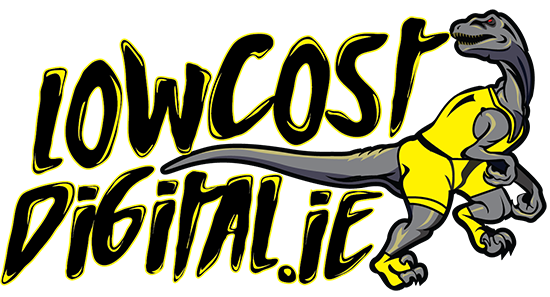In the ever-evolving world of technology, the fields of computer science and web design stand out as prominent career choices. While computer science delves into the intricacies of algorithms, programming languages, and software development, web design focuses on creating visually appealing and user-friendly websites. Both fields require a unique set of skills and offer diverse opportunities for professionals looking to make their mark in the digital realm. Let’s dive deeper into the nuances that distinguish these two captivating domains.
Key Highlights
- Computer science and web design are two distinct fields that have different focuses and career paths.
- Computer science involves the study of algorithms, programming languages, and machine learning, while web design focuses on creating visually appealing and user-friendly websites.
- The career goals in computer science typically revolve around software engineering and data analysis, while web design focuses on creating engaging user experiences and building brand identities.
- The skill sets required for computer science include strong programming skills, analytical thinking, and problem-solving abilities, while web design proficiency in HTML, CSS, and JavaScript, as well as an understanding of user interface design and branding.
- The educational pathways for computer science usually involve obtaining a bachelor’s degree in computer science or a related field, while web designers can pursue formal education or gain skills through certifications or bootcamps.
Introduction
Computer Science and Web Design are two fields that have gained significant importance in the digital age. With the rise of technology and the increasing reliance on the internet, professionals in these fields play a crucial role in shaping the digital landscape. While both fields are related to technology, they have distinct focuses and career paths.
Computer Science is a broad field that encompasses various aspects of computing, including algorithms, programming languages, and machine learning. It involves the study and development of software and systems that enable computers to perform tasks efficiently. Computer science professionals often work in software engineering, data analysis, artificial intelligence, and other areas that require advanced technical skills.
On the other hand, Web Design is more focused on creating visually appealing and user-friendly websites. Web designers use their creative and technical skills to design and develop websites that provide engaging user experiences. They are responsible for creating the layout, graphics, and overall design of websites, as well as ensuring the usability and functionality of the site. Web designers also play a crucial role in building brand identities and establishing a strong online presence for businesses and organizations.
In this blog, we will explore the fundamentals of computer science and web design, including their key concepts, technologies, and career opportunities. We will also delve into the educational pathways for pursuing a career in these fields and provide a comparative analysis of the two. By the end of this blog, you will have a better understanding of the differences between computer science and web design and be able to make an informed decision about which field aligns with your interests and career goals.
Exploring the Fundamentals of Computer Science
To understand the differences between computer science and web design, it is important to delve into the fundamentals of computer science. Computer science is a broad and interdisciplinary field that encompasses the study of algorithms, programming languages, and machine learning.
At its core, computer science is concerned with the design and development of software and systems that enable computers to perform tasks efficiently. This involves writing code in various programming languages, understanding algorithms and data structures, and utilizing mathematical and logical concepts. Computer scientists leverage their knowledge of programming languages to create software that solves complex problems and optimizes processes. They also explore advanced topics like machine learning, artificial intelligence, and data analysis to develop systems that can learn and adapt to new information.
Programming languages play a crucial role in computer science, as they are used to write code that instructs computers to perform specific tasks. Popular programming languages used in computer science include Python, Java, C++, and Ruby. These languages have their own syntax and set of rules, and computer scientists must be proficient in them to effectively develop software and systems. Algorithms, on the other hand, are step-by-step procedures or sets of rules used to solve specific problems. They provide a systematic approach to problem-solving and are a fundamental concept in computer science. Machine learning, a subset of artificial intelligence, focuses on developing algorithms that enable computers to learn from data and make predictions or decisions based on patterns and trends. It involves training models using large datasets and optimizing them to perform specific tasks, such as image recognition or natural language processing. By leveraging machine learning techniques, computer scientists can develop systems that can analyze and interpret large amounts of data, uncover insights, and automate decision-making processes.
Defining Computer Science and its Scope
Computer science is a broad and evolving field that encompasses various aspects of computing and technology. It is a multidisciplinary field that combines elements of mathematics, logic, and engineering to develop solutions and systems that enable computers to perform tasks efficiently.
The scope of computer science is vast and covers a wide range of topics, including algorithms, programming languages, data structures, computer architecture, artificial intelligence, software engineering, and more. It is a field that requires strong technical skills and problem-solving abilities. Computer scientists are responsible for developing software, designing and optimizing algorithms, analyzing data, and solving complex problems using computational methods.
Computer science plays a crucial role in the development of information technology and has applications in various industries, including healthcare, finance, transportation, and entertainment. It forms the foundation of many technological advancements and innovations, such as artificial intelligence, virtual reality, and cybersecurity. As technology continues to advance, the scope of computer science will continue to expand, creating new opportunities and challenges for professionals in the field.
Key Concepts and Technologies in Computer Science
Computer science encompasses a wide range of concepts and technologies that are essential for understanding and working in the field. Some key concepts and technologies in computer science include software development, database management, and artificial intelligence.
Software development is a fundamental aspect of computer science and involves the creation and maintenance of software systems. This includes writing code, designing user interfaces, and and debugging software to ensure its functionality and performance. Software development involves various stages, including requirements gathering, design, implementation, and testing.
Database management is another important concept in computer science. Databases are used to store and manage large amounts of data efficiently. Database management involves designing and creating databases, organizing data in a structured manner, and implementing mechanisms for accessing and manipulating data. Database management systems (DBMS) are used to manage and retrieve data from databases.
Artificial intelligence (AI) is a rapidly growing field within computer science that focuses on creating intelligent systems that can perform tasks that typically require human intelligence. This includes tasks like speech recognition, image recognition, natural language processing, and decision-making. AI encompasses various techniques and algorithms, such as machine learning, deep learning, and neural networks, to build intelligent systems.
These key concepts and technologies in computer science form the foundation for many applications and advancements in the field. Understanding these concepts is essential for professionals in computer science to develop innovative solutions and drive technological advancements.
Delving into Web Design
While computer science focuses on the development of software and systems, web design is more concerned with the visual and interactive aspects of creating websites. Web design encompasses various elements, including user experience (UX) design, user interface (UI) design, and brand identity.
User experience design focuses on creating websites that provide a seamless and enjoyable experience for users. This involves understanding users’ needs and behaviors, organizing content in a user-friendly manner, and optimizing the flow of information. User interface design, on the other hand, involves designing the visual elements of a website, such as layout, typography, and color scheme, to create an aesthetically pleasing and engaging user interface. Brand identity design is also an important aspect of web design, as it involves creating a consistent and recognizable visual identity for a brand through the use of logos, colors, and graphics.
Web designers use various tools and techniques to create visually appealing and user-friendly websites. This includes HTML (Hypertext Markup Language) for structuring web page content, CSS (Cascading Style Sheets) for controlling the visual styling and layout of web page elements, and JavaScript for adding interactivity and functionality to websites. By leveraging these tools and techniques, web designers create websites that not only look visually appealing but also provide an intuitive and engaging user experience.
Understanding Web Design: More Than Just Aesthetics
Web design is not just about creating visually appealing websites; it also involves understanding and implementing user interface design principles and coding techniques.
User interface (UI) design is a crucial aspect of web design as it focuses on creating a visually appealing and user-friendly interface for users to interact with. This includes designing the layout, typography, color scheme, and other visual elements of a website. UI designers aim to create intuitive and engaging user interfaces that provide a seamless and enjoyable user experience.
Coding is another important skill for web designers. While web designers may not need to have deep programming knowledge, they should have a basic understanding of HTML, CSS, and JavaScript. This allows them to work collaboratively with developers and implement design elements in a way that is compatible with the web development process. Web designers also use coding to create interactive elements and animations on websites.
In addition to designing static websites, web designers also create web applications (web apps) that provide dynamic and interactive functionalities. Web apps are websites with functionality similar to native mobile apps, allowing users to perform tasks and interact with data. Web designers use coding languages and frameworks like React and Angular to create web apps that provide a seamless user experience across different devices.
Tools and Techniques for Effective Web Design
Web designers use various tools and techniques to create visually appealing and user-friendly websites. Some of the key tools and technologies used in web design include HTML, CSS, and JavaScript.
HTML (Hypertext Markup Language) is the standard markup language used for structuring the content of web pages. It provides a set of tags that define the structure and semantics of a web page, such as headings, paragraphs, lists, links, and images. HTML allows web designers to define the layout and organization of the content on a web page.
CSS (Cascading Style Sheets) is a style sheet language used for controlling the visual presentation of web pages. CSS allows web designers to define the colors, fonts, layout, and other visual elements of a web page. It provides a way to separate the presentation of a web page from its structure, making it easier to maintain and update the design of a website.
JavaScript is a programming language that allows web designers to add interactivity and dynamic functionality to websites. It is commonly used for tasks such as form validation, creating interactive elements, and manipulating the content of a web page in real-time. JavaScript allows web designers to create engaging and interactive user experiences on websites.
In addition to these core technologies, web designers also use various tools and frameworks to streamline the design process. These tools include graphic design software like Adobe Photoshop and Illustrator for creating and editing visual elements, as well as code editors and development environments for writing and testing code. Web designers also use frameworks like Bootstrap and Foundation to build responsive and mobile-friendly websites more efficiently.
Key Takeaways on Computer Science vs Web Design
In conclusion, computer science and web design are two distinct fields with different focuses and career paths.
Computer science involves the study of algorithms, programming languages, and machine learning, and is concerned with the development of software and systems. It offers career opportunities in software engineering, data analysis, and artificial intelligence.
Web design, on the other hand, focuses on creating visually appealing and user-friendly websites. It involves understanding user experience design principles and using tools like HTML, CSS, and JavaScript to create engaging user interfaces. Web design offers career opportunities in UI/UX design, web development, and brand identity.
While there are some overlapping skills between computer science and web design, they require different skill sets and educational pathways. Computer science typically requires a bachelor’s degree in computer science or a related field, while web designers can pursue formal education or gain skills through certifications or bootcamps.
Summarizing What is Known and Unknown
Computer science and web design are related fields that overlap in some areas but require different skill sets and knowledge. Both fields are essential in the digital age and offer promising career opportunities.
While there are overlapping skills between computer science and web design, they require different levels of expertise and specialization. Computer science focuses more on the development of software and systems, while web design is more concerned with the visual and interactive aspects of creating websites.
The intersection between computer science and web design is becoming increasingly important as technology continues to advance. Many organizations seek professionals who have a solid understanding of both fields to create innovative solutions that combine technical expertise with user-centered design principles.
By gaining a deeper understanding of computer science and web design, individuals can make informed decisions about their career paths and pursue opportunities that align with their interests and goals.
Explaining the Blog’s Main Argument
The main argument of this blog is that computer science and web design are two distinct fields with different focuses and career paths. While they share some similarities, they require different skill sets, educational pathways, and career goals.
The choice between computer science and web design depends on personal interests, skill sets, and career goals. Individuals who are more technically inclined and interested in software development, data analysis, and artificial intelligence may find computer science to be a better fit. On the other hand, individuals with a passion for creativity, user experience design, and visual aesthetics may find web design to be a more fulfilling career path.
Ultimately, the decision between computer science and web design should be based on individual strengths, interests, and long-term career goals. Both fields offer promising opportunities for growth and innovation in the digital age.
Comparative Analysis: Computer Science and Web Design
In this section, we will conduct a comparative analysis of computer science and web design, focusing on career opportunities, skill sets required for success, and potential salary ranges.
Both computer science and web design offer promising career opportunities. Computer science professionals can pursue careers in software engineering, data analysis, and artificial intelligence, while web designers can work in UI/UX design, web development, and brand identity.
The skill sets required for success in computer science include strong programming skills, analytical thinking, and problem-solving abilities. Web designers, on the other hand, require proficiency in HTML, CSS, and JavaScript, as well as an understanding of user interface design and branding.
In terms of salary, both fields offer competitive compensation. However, computer science professionals generally command higher salaries due to the technical expertise and specialized knowledge required in the field.
Career Opportunities in Both Fields
Both computer science and web design offer a wide range of career opportunities in the tech industry.
In computer science, career options include software engineer, data scientist, machine learning engineer, systems analyst, and database administrator. These roles involve developing software, analyzing data, designing algorithms, and optimizing systems.
Web design offers career opportunities such as UI/UX designer, web developer, front-end developer, graphic designer, and brand identity designer. These roles involve creating visually appealing and user-friendly websites, designing user interfaces, and developing web applications.
Both fields offer exciting and dynamic careers with opportunities for growth and advancement. The tech industry is constantly evolving, and professionals in computer science and web design play a crucial role in driving innovation and shaping the digital landscape.
Skill Sets Required for Success
Success in computer science and web design requires a specific set of skills. In computer science, strong programming skills are essential, including proficiency in programming languages such as Python, Java, C++, and Ruby. Computer scientists also require critical thinking and problem-solving abilities to develop efficient and effective solutions to complex problems. A solid foundation in mathematics and logical reasoning is also important for success in computer science.
In web design, proficiency in HTML, CSS, and JavaScript is crucial for creating visually appealing and functional websites. Web designers also need strong critical thinking and problem-solving abilities to design intuitive user interfaces and resolve technical issues. Additionally, creativity and an eye for design are important skills for developing engaging user experiences.
|
Skill Set |
Computer Science |
Web Design |
|
Programming Skills |
Python, Java, C++, Ruby |
HTML, CSS, JavaScript |
|
Critical Thinking |
✔️ |
✔️ |
|
Problem-Solving |
✔️ |
✔️ |
|
Creativity |
✔️ |
Educational Pathways
The educational pathways for computer science and web design differ in terms of degree requirements and options.
For computer science, a bachelor’s degree in computer science or a related field is typically required. Some positions may also require advanced degrees such as a master’s or Ph.D. Certification programs are also available for specific programming languages or technologies.
Web design offers more flexible educational pathways. While formal degrees in web design or related fields are available, individuals can also gain skills through certifications or intensive bootcamp programs. These shorter-term programs focus on practical skills and provide hands-on experience in web design.
The choice of educational pathway depends on individual preferences, career goals, and time constraints. Both formal education and alternative pathways can lead to successful careers in computer science and web design.
Academic Requirements for Computer Scientists
Computer scientists typically require a strong foundation in computer programming, algorithms, and data analysis. A bachelor’s degree in computer science or a related field is the most common educational pathway for aspiring computer scientists. In these programs, students learn programming languages such as C++, Java, and Python, as well as data structures and algorithms. They also gain a deep understanding of computer systems, software development methodologies, and database management. Advanced courses may cover topics like artificial intelligence, machine learning, and computer networking. Additionally, computer scientists often engage in research projects to further explore specific areas of interest. Graduates with a degree in computer science can pursue careers as software engineers, data scientists, systems analysts, or researchers in various industries.
Learning Path for Aspiring Web Designers
Aspiring web designers have various learning pathways to acquire the necessary skills for a career in web design. One option is to take online courses or tutorials that cover web development languages like HTML, CSS, and JavaScript. These courses often provide hands-on projects and real-world examples to help students practice their skills and understand the fundamentals of web design. Another popular tool in web design is WordPress, a content management system that allows users to create and customize websites without coding knowledge. Familiarizing oneself with WordPress and its plugins can be beneficial for web designers. Additionally, understanding design principles, such as color theory, typography, and user experience, is crucial for creating visually appealing and user-friendly websites. Pursuing a degree or certification in web design or graphic design can also provide a comprehensive understanding of the field.
Real-world Applications and Impact
Both computer science and web design have widespread real-world applications and significant impact. Computer science is responsible for developing software solutions that power various industries and enable tasks such as data analysis, machine learning, and artificial intelligence. These developments have revolutionized fields such as healthcare, finance, and transportation. On the other hand, web design has transformed the way we interact with websites and apps, enhancing user experiences on both desktop and mobile devices. Web designers play a crucial role in creating intuitive interfaces and designing mobile applications that are visually appealing and functional. The impact of computer science and web design can be seen in the development of new products, improved user experiences, and increased efficiency across industries.
How Computer Science Shapes Our World
Computer science plays a significant role in shaping our world through advancements in software engineering, machine learning, and data science. Software engineers develop complex systems and applications that power various industries and enable tasks such as data analysis, automation, and optimization. Machine learning, a subset of artificial intelligence, allows computers to learn and improve from data, leading to advancements in areas such as natural language processing, image recognition, and recommendation systems. Data science utilizes computer science techniques to analyze large datasets, extract insights, and make informed decisions. These advancements have had a profound impact on fields like healthcare, finance, transportation, and entertainment. Computer science continues to push the boundaries of technology and drive innovation in our increasingly digital world.
The Role of Web Design in Today’s Digital Age
Web design plays a crucial role in today’s digital age, where user experience and visual appeal are paramount. Web designers are responsible for creating websites and web applications that are user-friendly, visually appealing, and accessible across various devices. With the increasing use of mobile devices, web designers must ensure that websites are responsive and optimized for mobile platforms. Mobile applications have also become an essential part of our daily lives, and web designers play a significant role in designing intuitive and visually appealing mobile interfaces. Additionally, web design has transformed the way we access information, communicate, and conduct business on the internet. Effective web design enhances user experiences, increases engagement, and drives online success for businesses and organizations.
Conclusion
In conclusion, understanding the distinctions between Computer Science and Web Design is crucial for anyone considering a career in these fields. Computer Science delves into the core principles of computation, while Web Design focuses on creating visually appealing and user-friendly websites. Both offer diverse career opportunities and require specific skill sets for success. Whether you are drawn to the logic and algorithms of Computer Science or the creativity and aesthetics of Web Design, each field plays a vital role in shaping our digital world. Exploring these disciplines further will help you determine which path aligns best with your interests and career aspirations.
Frequently Asked Questions
Can Web Designers Benefit from Computer Science Knowledge?
Yes, web designers can benefit from computer science knowledge, particularly in programming skills and software development. Understanding programming languages and software development methodologies can enhance a web designer’s ability to create dynamic and interactive web applications. Familiarity with APIs (Application Programming Interfaces) can also enable web designers to integrate external services and functionalities into their designs.
Which Field Offers Better Career Growth?
Both computer science and web design offer promising career growth opportunities. The tech industry is continuously expanding, creating a high demand for skilled professionals in both fields. However, computer science careers often come with higher salaries and more opportunities for advancement due to the complexity and specialized skill set required. Choosing the right field depends on individual career goals and personal interests.












